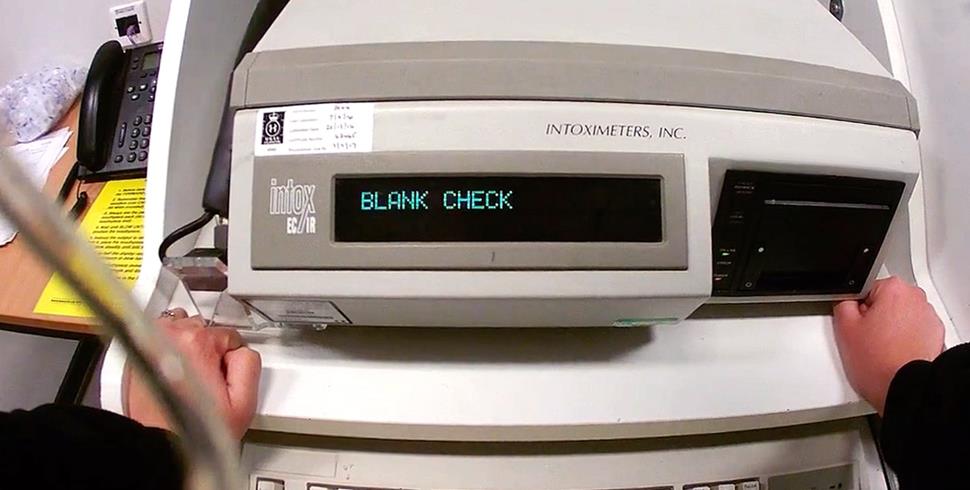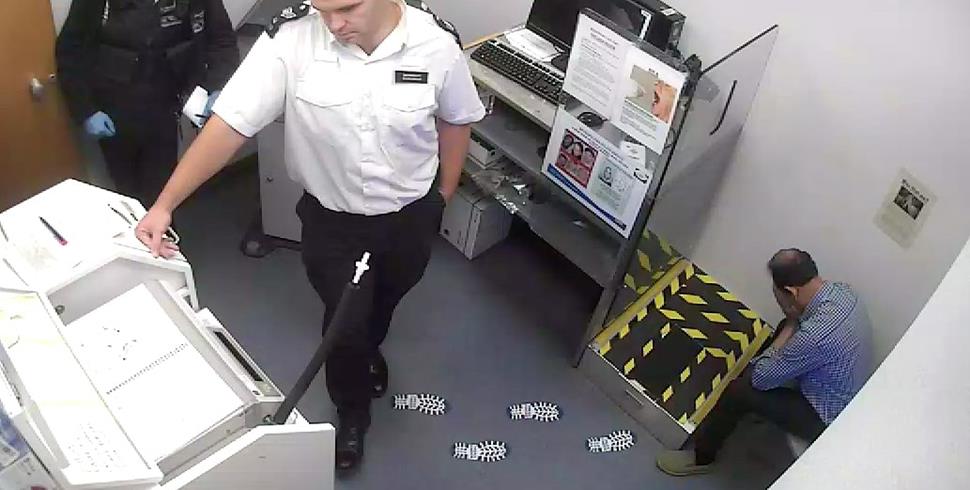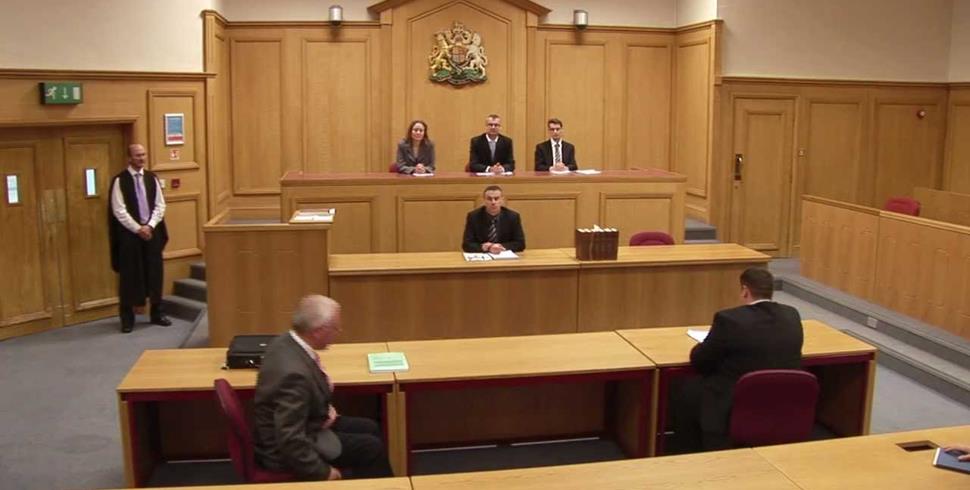
Pleading Not Guilty To Drink Driving
Last month we processed 33 Defence Cost Orders (DCO). A DCO is granted by the court when we win a drink driving case, whether or not it goes to trial. A DCO allows us to recover some of the legal fees paid by our clients - meaning we can give you some money back.
July was a record breaking month for MAJ Law as we continue to develop unique defence strategies to challenge motoring offences. We also welcomed three new employees to the team. Last year, Plimsol Analytics ranked MAJ Law as the fastest growing motoring defence firm in the UK.
 As a specialist driving solicitor, I spend a lot of time representing clients charged with drink driving offences. My goal, whatever the situation, is to give every client the best representation possible - and the best chance of winning the case. I believe that every motorist has the right to see the evidence against them and to receive a fair trial. In my experience, the police and CPS are lazy; they rely on motorists pleading guilty at court. Why is it that when a motorist pleads not guilty to drink driving, the prosecution start to complain? Probably because of the time, money and resources involved in prosecuting a case. We're here to help you navigate your way through a strange and confusing judicial system.
As a specialist driving solicitor, I spend a lot of time representing clients charged with drink driving offences. My goal, whatever the situation, is to give every client the best representation possible - and the best chance of winning the case. I believe that every motorist has the right to see the evidence against them and to receive a fair trial. In my experience, the police and CPS are lazy; they rely on motorists pleading guilty at court. Why is it that when a motorist pleads not guilty to drink driving, the prosecution start to complain? Probably because of the time, money and resources involved in prosecuting a case. We're here to help you navigate your way through a strange and confusing judicial system.
Always consider your options before stepping into court. Remember that a criminal record can have far reaching consequences. A driving ban could be avoided.
5 Reasons the CPS Drop DUI Cases
1. The Code for Crown Prosecutors
The Code for Crown Prosecutors is a public document, issued by the Director of Public Prosecutions, that sets out the general principles Crown Prosecutors should follow when they make decisions on cases [CPS.gov.uk].
Is there enough evidence against the defendant?
When deciding whether there is enough evidence to charge, Crown Prosecutors must consider whether evidence can be used in court and is reliable and credible, and there is no other material that might affect the sufficiency of evidence. Crown Prosecutors must be satisfied there is enough evidence to provide a "realistic prospect of conviction" against each defendant.
Is it in the public interest for the CPS to bring the case to court?
A prosecution will usually take place unless the prosecutor is sure that the public interest factors working against prosecution outweigh those working in favour.
We can use these principles to better understand how the CPS make charging decisions in drink driving cases. Take the example below;
James was charged with drink driving after smashing his car into a brick wall. When the police arrived on scene James was stood next to the car, uninjured. There was no one else around and no one witnesses the accident. At the station, he blew 93ug. James was charged by the police and sent to court.
I represented James at his court hearing and advised him to plead not guilty. The reason I advised him to plead not guilty is because there appeared to be no 'direct' evidence that James drove the vehicle - only circumstantial evidence. I asked the CPS to prove that my client was driving the vehicle. Turning to the Code for Crown Prosecutors and the full code test, the CPS had to consider whether there was enough evidence to provide a 'realistic prospect of conviction'. Long story short, they couldn't. It was probably in the public interest to prosecute James, but if the evidence is insufficient the CPS cannot proceed with the prosecution. I often find myself referring to the Code for Crown Prosecutors in court to remind the CPS of its obligations and responsibilities. It's a useful took to put pressure on the CPS to drop cases.
Many prosecutors fail to realise what evidence is required to prove a drink driving case. They may be able to prove that you were over the drink driving limit, but what about the procedure and the paperwork? Have you seen all of the evidence in your case?
2. Police Mistakes
The police are known for making mistakes. I regularly speak to prosecutors in court who are fed up of police officers passing them flimsy cases littered with procedural errors and evidential oversights. Remember - the prosecution's case is only as strong as the evidence available. Is the evidence is weak or incomplete, there is no case to answer.
If you speak to any member of my team they will tell you about the MGDD procedure. This is the bible. The MGDD document contains a written record of the breath, blood or urine procedure carried out in police custody. It is a 25 page instruction manual containing carefully worded statements that must be read to you before you take the test. The whole process can take anywhere from 15 minutes to one hour. Can you remember how long you spent in the breath test room and do you recall this document?
One the most common reasons we find mistakes with this process is because drink driving, by its very nature, is 'time sensitive'. What I mean by this is that alcohol levels reduce overtime. A huge concern for any officer trying to impress his colleagues is the risk that you might drop below the legal limit by the time you're tested. Let's assume it takes an officer 45 minutes to fill out the MGDD document. During this time, the level of alcohol in your system will drop substantially, thereby resulting in a lower breath reading (and one that might put you under the legal limit). If the officer skips the document and breath tests you straight away, the level of alcohol in your system is going to be higher - meaning you're more likely to be charged. Remember that within the police force it's a 'target driven culture'. All police forces have quotas on arrests & convictions. Many cases are pushed to court because the police expect a guilty plea. How do you know the police have the correct evidence if you don't ask to see it?
Take a look at our recent case study examining this issue in more detail.
3. Lost or missing evidence
At any one time the Police and CPS have hundreds of thousands of prosecutions to deal with. Many of which are far more serious than drink driving offences. In order for the CPS to successfully prosecute someone, they have to be equipped with all the necessary evidence to persuade the court, beyond doubt, that the defendant is guilty. So where does the evidence actually come from?
The relationship between the CPS and the police is an important one. The police have a key role in the prosecution process; they are responsible for the detection and investigation of criminal offences, including all motoring offences. The police also perform many of the tasks integral to the conduct of a case. This includes warning witnesses to attend court, obtaining further witness statements, and keeping victims informed as to the progress of the case. [Police and CPS Relations Updated: December 2018. Legal Guidance]
The problem for the CPS is that often these communication channels break down part way though a case, leading to miscommunication and mismanagement of drink driving cases. This usually results in the CPS missing court directions and deadlines. If the CPS cannot provide disclosure in time, it should not be admissible in evidence against you. No evidence. No case to answer.
4. Witness availability
As above, one role of the Police is to arrange witness attendance at court. So long as your drink driving case has been prepared in the correct way, the CPS will be required to bring witnesses to court (usually police officers) in order to prove the case against you. Even if you don't have a 'defence' in law, or the evidence is stacked against you, you can still win the case if the witnesses fail to attend. Regularly, due to miscommunication between the police and CPS, witnesses don't turn up at trial! Even if a witness (such as a police officer) is told to attend court, they still have to manage their commitments alongside training courses, annual leave, other court cases etc...
You may think that the chance of a witness failing to attend court is slim, but it still amazes me how often this happens. It's a sure-fire way of winning a drink driving case.
5. A defence
Remember that even if you're over the drink drive limit you could still have a defence. I have listed below some of the most effective drink driving 'defences';
- The MGDDA Procedure
- Post driving consumption (AKA The Hip Flask Defence)
- Identification
- Capacity
- Disclosure
Drink Driving NOT GUILTY FAQ's
If I'm later found guilty will I receive a longer driving ban?
No. One of the big reasons why most motorists plead guilty at court is because they're worried about making the situation worse. This is not something you need to worry about. The court cannot impose a longer driving ban after pleading not guilty. The length of ban is based on the circumstances surrounding the offence (not your decision to plead guilty/not guilty).
'Credit' for an early guilty plea applies only to the fine, community order or custody sentence.
Does it mean I have to go to trial?
No. You are always in control of your case. The beauty of a not guilty plea is that you can change your mind at any point (e.g. once you have seen the evidence). You could even push the case to trial and, if the witnesses turn up, change your plea at court. Even in these circumstances the length of ban cannot increase.
Do I have to speak in court if I plead not guilty?
No. You only have to confirm your name and plea. Your solicitor should do all the talking (assuming you're represented). If you're not represented then you will be asked to speak.
Even if the case goes to trial, you do not need to give evidence in court. Many cases that we win don't involve a trial or a client giving evidence.
Useful Drink Driving Links
Calculate the length of your ban with our penalty calculator
Mental health support - Alcohol Change UK
Getting Free Legal Advice - The Law Society
Find a Magistrates' Court - GOV.UK
VIDEO - Choosing the Right Solicitor for your case
Related Articles







